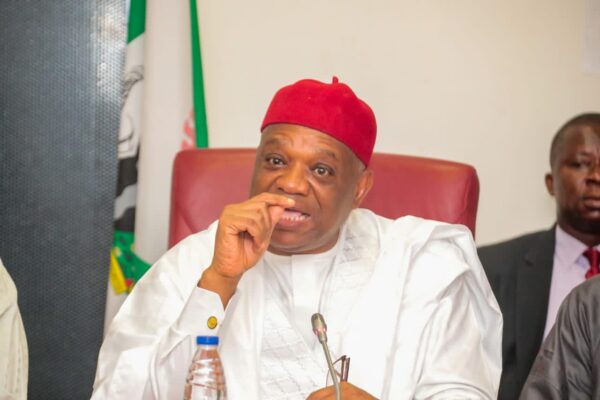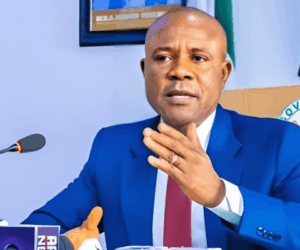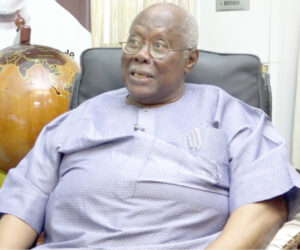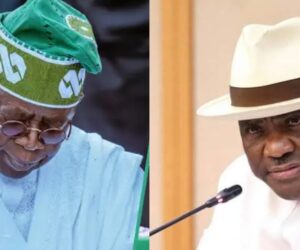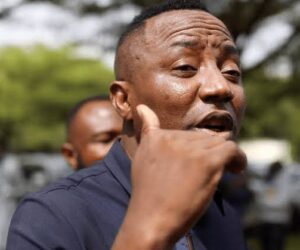The Nigeria Civil Aviation Authority (NCAA) has debunked the allegations made by the senator representing Abia North and a former airline owner, Orji Uzor Kalu, that some Nigerian pilots smoke Indian hemp before flights.
Mr Kalu, during the Senate plenary on Wednesday, had alleged that some pilots get “high” before flights and blamed drug use and poor regulatory oversight for runway-related incidents and operational lapses.
In a statement issued on Thursday by the director-general of the NCAA, Chris Najomo, the authority described the claim as baseless and misleading, insisting that all the licensed pilots in Nigeria undergo rigorous medical, professional, and safety checks before they are cleared to fly.
The regulator noted that it runs an internationally recognised system for certifying and monitoring the medical and professional fitness of all pilots operating in Nigeria.
“No pilot is permitted to operate a Nigerian-registered aircraft without holding both a valid pilot licence and a current medical certificate,” the NCAA stated, citing Nigeria Civil Aviation Regulations (Nig. CARs) Part 8.4.1.4.
It added that holders of commercial pilot licences and airline transport pilot licences must possess a Class 1 medical certificate issued only after comprehensive aero-medical evaluations by NCAA-authorised examiners and verified by in-house aero-medical assessors.
“These examinations cover cardiovascular, neurological, psychological, metabolic, respiratory, and visual assessments to ensure the pilot’s physical and mental fitness,” the statement said.
The tests, it explained, also screen for the use of psychoactive substances, mental or behavioural disorders, and other conditions that could impair safe flight operations.
Random drug tests, ramp checks and enforcement
The NCAA asserted that Nigeria’s aviation regulations explicitly forbids any crew member from acting as a flight crew member within eight hours after consuming alcohol or under the influence of any psychoactive substance.
“In accordance with this regulation, the NCAA carries out on-the-spot alcohol and drug testing when there is reasonable suspicion of intoxication,” Mr Najomo explained.
He added that the aviation industry watchdog also conducts random, unannounced substance tests on crew members, with results admissible as legal evidence.
The NCAA said its inspectors conduct daily ramp inspections across Nigerian airports, checks that include aircraft documentation, crew licences, medical certificates and overall fitness for duty.
“Any irregularity is immediately addressed, and appropriate enforcement action is taken. Our zero-tolerance policy for safety violations is well established,” the statement added.
ALSO READ: Orji Kalu commissions projects in Zamfara, praises Gov Lawal
The authority cited its August 2025 suspension of a ValueJet pilot who initiated departure procedures without proper clearance — an instance it said underscores its “uncompromising commitment to safety and discipline.”
“Take-offs are manual, not automatic”
Responding to Mr Kalu’s suggestion that modern aircraft such as Boeing 737-500s “do not need pilots” because take-off and landing are automated, the NCAA said the claim is technically inaccurate.
“Take-offs are entirely manual operations carried out by the flight crew. Autopilot functions are only activated after take-off, usually when the aircraft reaches a safe altitude,” the statement noted.
It added that while some aircraft are equipped with auto land capabilities, these are used only under specific conditions and always under pilots’ supervision.
“Nigeria currently has no airport certified for Category III (CAT III) operations — the standard required for fully automatic landings in low-visibility conditions. Therefore, all landings within Nigerian airspace are manually executed by pilots,” the agency said.
Mr Najomo further said the NCAA is proud of the professionalism of Nigerian flight crew and the robustness of its oversight structure, adding that the regulator has never and will not condone any practice that can erode public confidence in the aviation system.
While acknowledging the Senate’s concern, the NCAA said the senator’s comments “do not reflect the factual state of regulatory practice in the Nigerian aviation sector.”
“The authority remains open to constructive engagement with the National Assembly and all stakeholders to further strengthen the safety, integrity, and global reputation of Nigeria’s air transport industry,” it added.

